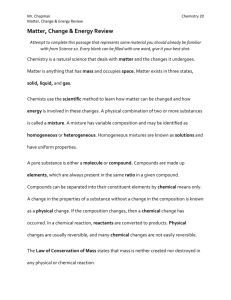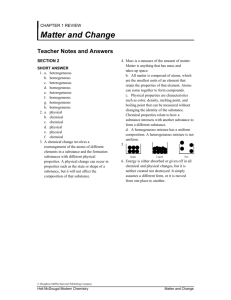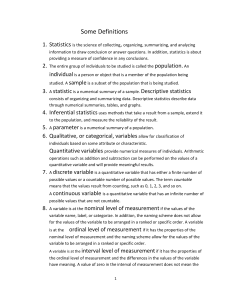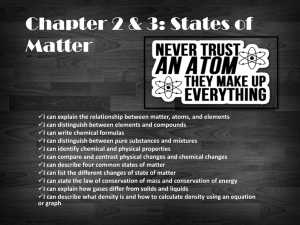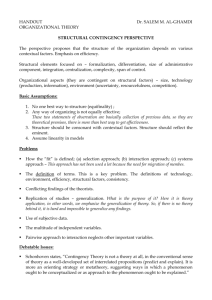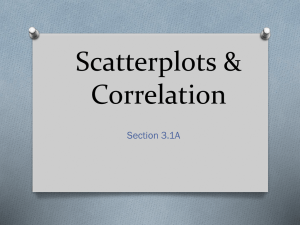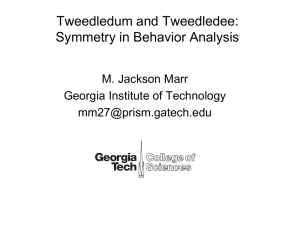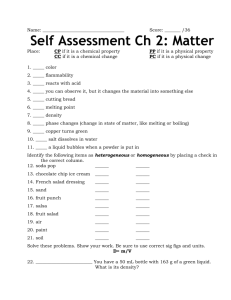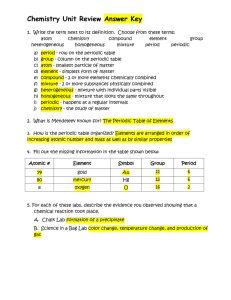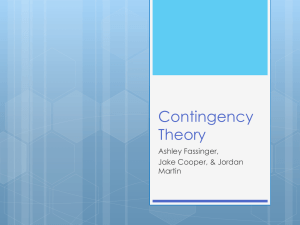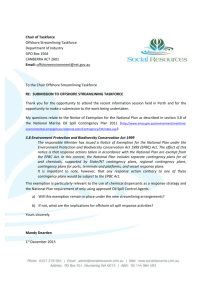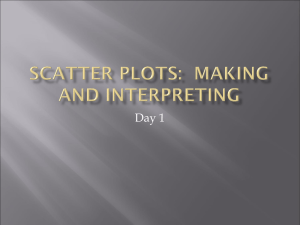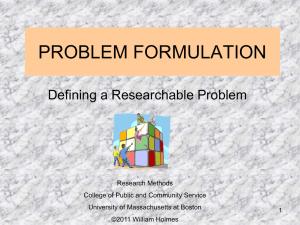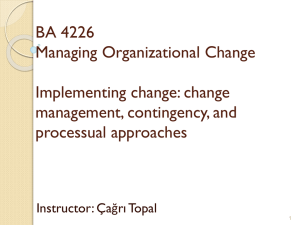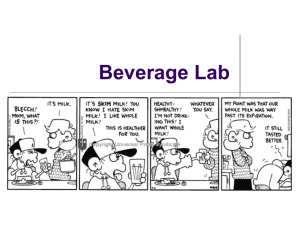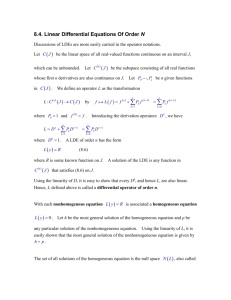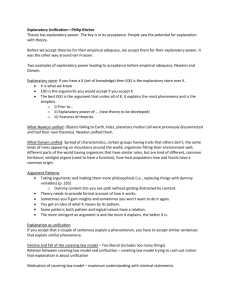REDUCTIONISM - School of Psychology
advertisement
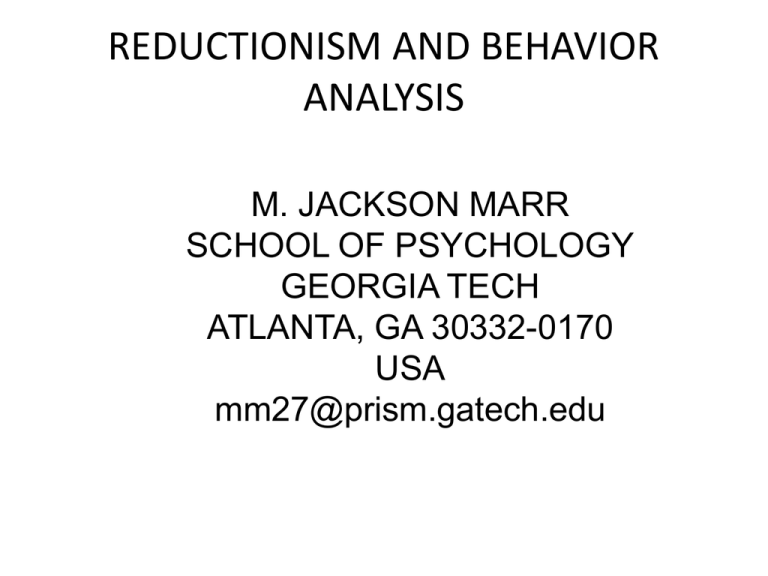
REDUCTIONISM AND BEHAVIOR ANALYSIS M. JACKSON MARR SCHOOL OF PSYCHOLOGY GEORGIA TECH ATLANTA, GA 30332-0170 USA mm27@prism.gatech.edu The goal of any science is to reduce the apparent complexity of nature to relatively simple accounts, principles, or mechanisms all of which manifest a causal structure. NAGEL’S CATEGORIES 1. HOMOGENEOUS REDUCTION 2. HETEROGENOUS REDUCTION HOMOGENEOUS REDUCTION Issues of Homogeneous Reduction in Behavior Analysis 1. Definition of behavior and functional classifications 2. Role of behavior in the natural sciences 3. Patterns of explanation 4. Contingency—the fundamental explanatory concept in behavior analysis DEFINITIONS OF BEHAVIOR ROLE OF BEHAVIOR IN THE NATURAL SCIENCES PATTERNS OF EXPLANATION: WHAT CONSTITUES AN ACCOUNT? Operant Conditioning MATCHING-TO-SAMPLE comparison sample comparison Maxwell’s Equations • Symmetry between electricity and magnetism: Explained the nature of light as electromagnetic waves moving at speed c. CONTINGENCY: THE FUNDAMENTAL EXPLANATORY CONCEPT Three-term Contingency SD SD: discriminative stimulus SR Ro Ro: operant class SR: reinforcer Newton’s Second Law of Motion F m dv dt F: force m: mass dv/dt: acceleration ISSUES OF BEHAVIOR PATTERNS 1. FUNCTIONAL UNITS OF BEHAVIOR 2. MOLARMOLECULAR DISTINCTION HETEROGENEOUS REDUCTION SKINNER’S “HETEROGENEOUS” REDUCTION “…any explanation of an observed fact which appeals to events taking place somewhere else, at some other level of observation, described in different terms, and measured, if at all, in different dimensions.” WHAT IS GOING ON IN OUR BODIES WHEN WE BEHAVE? SOME PHILOSOHICAL POSITIONS 1.ONTOLOGICAL REDUCTION 2.EXPLANATORY REDUCTIONISM 3.METAPHYSICAL MATERIALISM MEREOLOGICAL FALLACY: ATTRIBUTING A PROPERTY OF A WHOLE TO A PART OF THE WHOLE. ARE WE MACHINES?! GENERAL FUND OF BIOLOGICAL EXPLANATION • 1. Molecular Processes (biochemical, biophysical) • 2. Cellular functions • 3. Tissue/organ functions • 4. Morphogenic-developmental • 5. Behavioral-environmental • 6. Species adaptation-evolution

